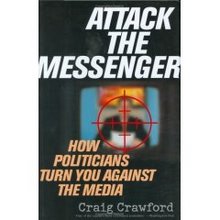"McCain Proposes a $300 Million Prize for a Next-Generation Car Battery"
This falls into hair brained schemes!
The high cost of gasoline — a gallon of regular was selling for $4.65 at a gas station near California State University, Fresno, where Mr. McCain spoke — has made energy policy a big issue in this year’s presidential campaign, and barely a day has passed recently without one of the candidates weighing in with new energy policies, proposals and attacks on opponents.
Mr. McCain, of Arizona, alienated some environmentalists last week during a speech in Houston when he dropped his opposition to allowing offshore drilling for oil; this week, in a swing through California, he spoke about trying to wean the nation from its dependence on oil. He called for improving the enforcement of fuel economy standards, building more cars that could run on alternative fuels, dropping the tariff on imports of sugar-based ethanol from Brazil and offering big tax credits for nonpolluting cars.
“I further propose we inspire the ingenuity and resolve of the American people,” Mr. McCain said, “by offering a $300 million prize for the development of a battery package that has the size, capacity, cost and power to leapfrog the commercially available plug-in hybrids or electric cars.”
He said the winner should deliver power at 30 percent of current costs. “That’s one dollar, one dollar, for every man, woman and child in the U.S. — a small price to pay for helping to break the back of our oil dependency,” he said.
The Obama campaign countered by noting that Mr. McCain had voted against improving fuel efficiency standards in the Senate. Jason Furman, the Obama campaign’s economic policy director, said in a conference call that Mr. McCain had been focused on “meaningful relief for oil companies that are struggling with record profits.”
In his speech in Fresno, Mr. McCain called for automakers to act more quickly to build so-called flex-fuel vehicles than can run on alternative fuel. He approvingly cited the example of Brazil, which he said had moved to building 70 percent of all new vehicles that way in just three years, and he issued a not-so-veiled threat to automakers.
“Whether it takes a meeting with automakers during my first month in office, or my signature on an act of Congress,” he said, “we will meet the goal of a swift conversion of American vehicles away from oil.”
And Mr. McCain emphasized one of his differences with Mr. Obama, without mentioning him by name, by restating his opposition to subsidies for corn-based ethanol, which Mr. Obama supports.
“As taxpayers, we foot the bill for the enormous subsidies paid to corn producers,” he said. “And as consumers, we pay extra at the pump because of government barriers to cheaper products from abroad.”
Mr. McCain, who spoke against corn-based ethanol when he ran for president in 2000, said this time around that he became a supporter of it when oil grew too expensive, but he has said he still opposes subsidies for ethanol.
While the McCain and Obama campaigns were sparring over energy, Mr. Obama was in Albuquerque, where he focused on the economy and working women, a critical constituency. He journeyed deep into the prosaic land of gut-level economics at the Flying Star Café Commissary, where talk of globalization and vertical economies yields to “how can I afford to make it through this week and the one after that?”
Speaking to a group of women, Mr. Obama, of Illinois, was offered a glimpse into one of the realities of the American economy: that wages for the working-class have lagged far behind those of upper-income Americans. Some of the women at the commissary, like Carrie Hummel, 28, told of holding down multiple jobs and still barely being able to find the money to pay for gas, much less for her health insurance. “You know, this life is pretty hard,” she said.
Ms. Hummel was followed by a woman who asked Mr. Obama if he would consider waiving taxes on tips, and another who asked about the cost of college tuition, which has risen at a rate far outstripping inflation.
Mr. Obama offered a variety of proposals, including requiring employers t0 provide seven paid sick days for all employees (he has not specified the size of the employer) and extending the Family and Medical Leave Act to cover any company with 25 or more employees (the act now applies to those with 50 or more employees).
He also criticized Mr. McCain over his opposition to legislative action to help bring wages of women up to those of men. The McCain campaign fired back, saying the legislation to do so would have been a boon to trial lawyers, who have supported Mr. Obama’s campaign.
http://www.nytimes.com/2008/06/24/us/politics/24campaign.html








